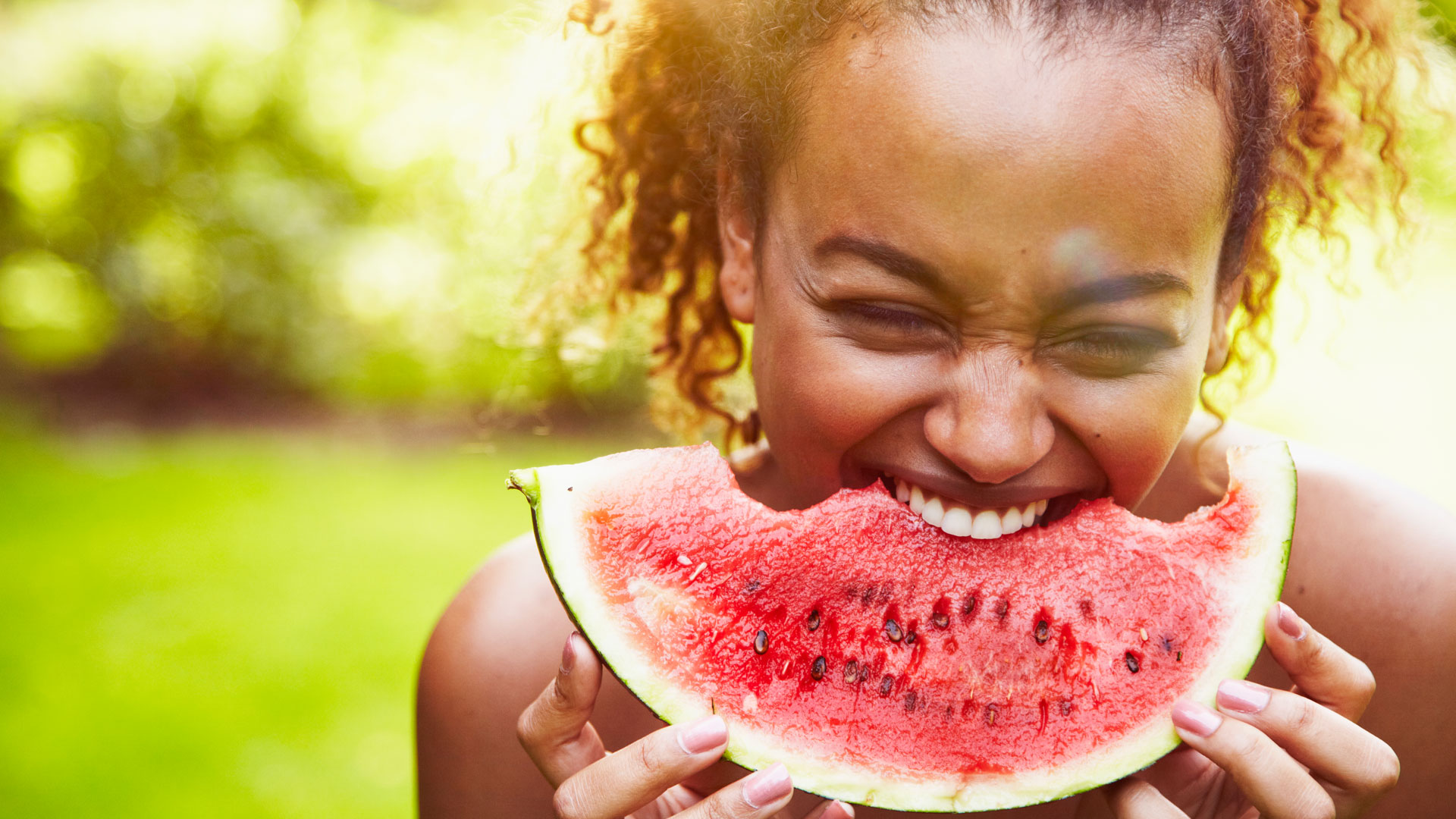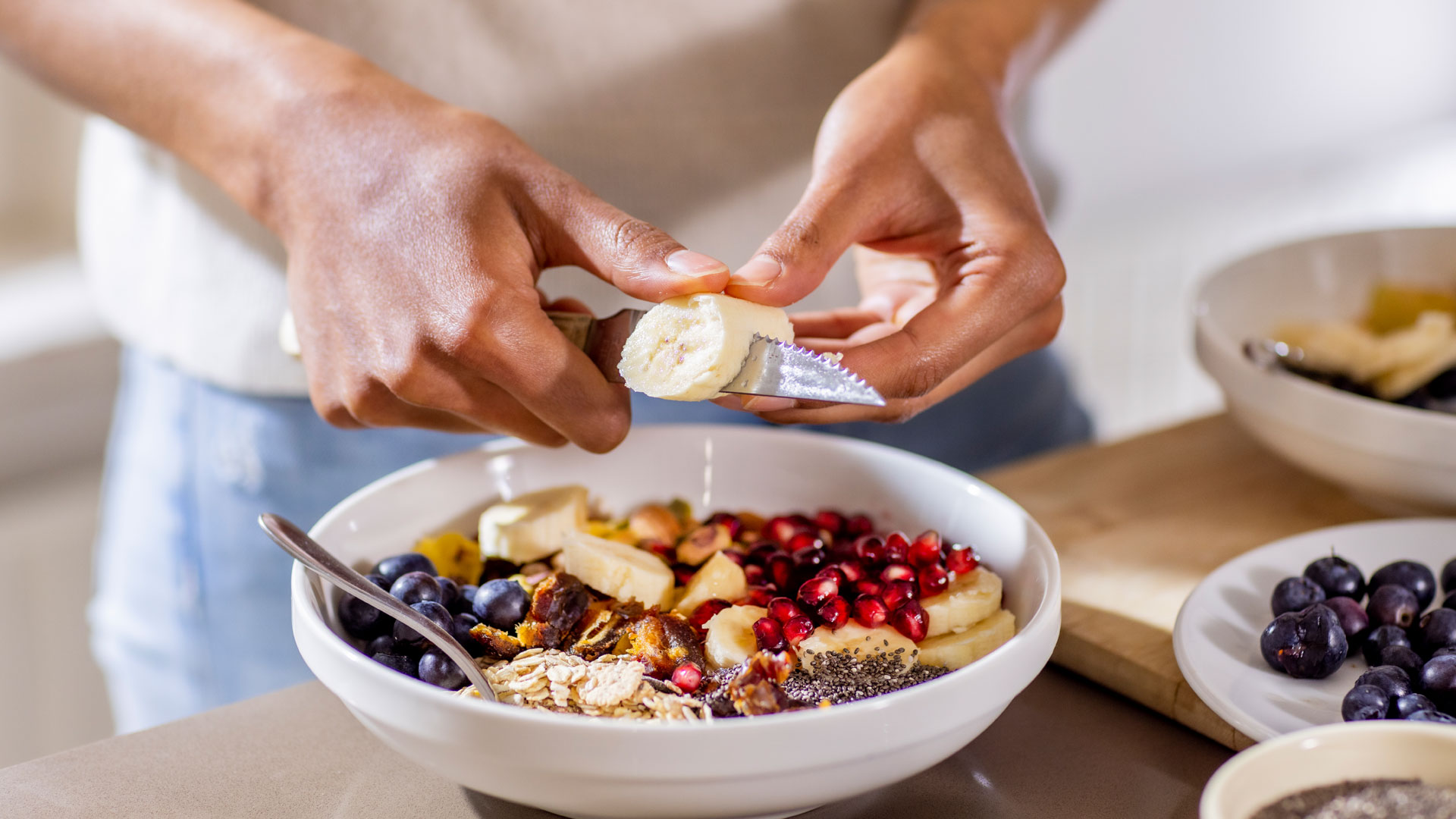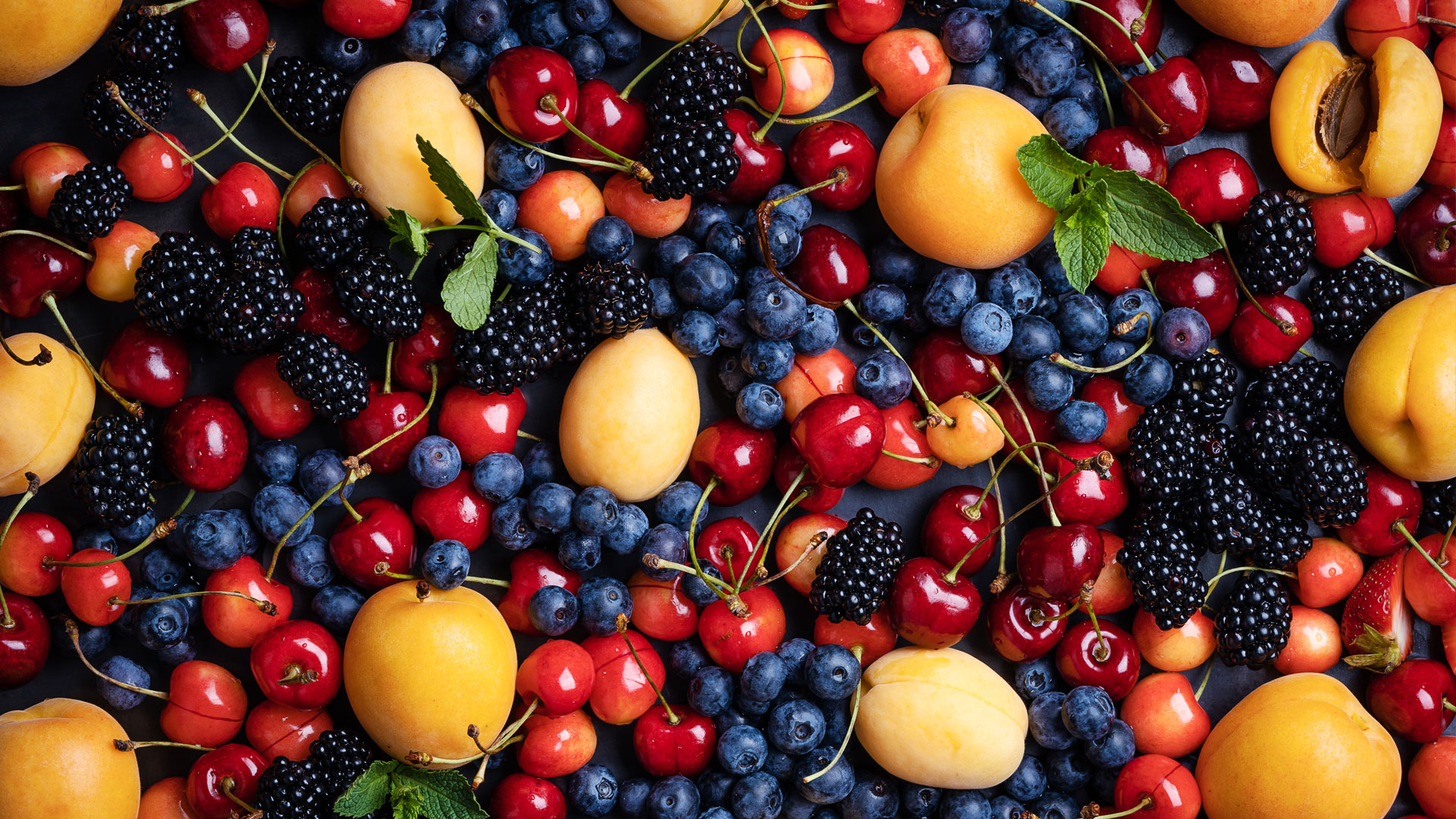Does fruit have protein?
Does fruit have protein? We’ve got the lowdown on high-protein fruits, plus we take a deeper dive on its other health benefits


If you’re asking; does fruit have protein? You might be surprised at how much they contain. Whether you're trying to bulk up or lose weight, you may be looking for extra ways to add protein to your everyday diet. While fruit will never be a substitute for protein-rich meat, fish, dairy or vegetables, it can be a sneaky way to introduce extra protein in between meals, as well as being a healthy snack that provides energy, vitamins and minerals.
We’ve looked at the latest research on protein-rich fruits and the associated health benefits, and we’ve chatted to a performance nutritionist for their advice on which fruits to include as part of a high-protein diet.
If you’re still struggling to get enough protein, or you want to feel fuller for longer, why not take a look at our best protein powders for weight loss. We’ve tested some of the biggest brands to see which ones are worth the money.

Does fruit count as protein?
“In short, no. Fruit doesn't count as a protein as there are no fruits that are a sole protein source,” says Liam Holmes, performance nutritionist and owner of pH Nutrition. “Some fruits contain protein, but this is a lot lower than the carbohydrates and fats contained in them.”
While you can’t technically count fruit as protein, there’s no reason why you can’t include more fruits in your everyday diet that have protein, especially if you’re trying to build muscle or lose weight.
Fruits are also rich in vitamins and minerals that count towards your recommended intake of 1.5 - 2 cups per day. Unfortunately, an astonishing four in five people in the United States don’t eat enough fruit, according to the Dietary Guidelines for Americans (2020-2025), so that’s another reason to start packing more into your daily diet.

Liam is a performance nutritionist and owner of pH Nutrition. He specializes in sports nutrition, CrossFit nutrition and optimizing health. Having originally trained in Sports Therapy, he completed an MSc in Exercise and Nutrition Science. He has worked in elite sport for 16 years and has seen the impact nutrition can have on health, performance and recovery.
Alongside running pH Nutrition, Liam is a nutritionist for Celtic Football Club and an ambassador for Foodspring, a premium fitness food and sports nutrition brand. Liam has also worked with Premiership football clubs, including Tottenham Hotspur and Fulham. His philosophy is that of simplifying nutrition. He keeps up to date with the latest evidence but takes this and applies it in a practical and achievable manner. The majority of his work includes consulting for gym members, CrossFit athletes, and those just looking to be healthier.
How does the body break down fruit?
“The form of carbohydrates in fruit is mainly fructose, and the metabolism of this is Fructolysis,” says Holmes. “Unlike glucose, which is metabolized throughout the body in muscle and fat cells via glycolysis, fructose is almost solely metabolized in the liver as most cells are incapable of metabolizing fructose directly.”
Start your week with achievable workout ideas, health tips and wellbeing advice in your inbox.
“Instead, all the reactions involved in fructose metabolism occur in the cytosol of cells. Fructose is broken down into glucose and lactate, and a small amount is converted to glycogen and triglyceride synthesis.”
Don’t forget all the great vitamins, minerals and other compounds, such as antioxidants, that you also get from fruit. Your digestive system extracts these natural goodies from digested fruit and absorbs them into the bloodstream, delivering them to cells that need them most.
You may have heard that it’s better to eat fruit on an empty stomach to improve digestion. According to Tufts Frances Stern Nutrition Center, there is no scientific evidence to support this myth.

7 high protein fruits
The following seven fruits are high in protein and other beneficial nutrients. So why not try some of these in your everyday diet?
1. Guava
Guava is one of the most protein-rich fruits around. “You’ll get a whopping 4.2 grams of the stuff in every 1-cup serving alongside a good dose of vitamin C and fiber,” says Holmes. A 2018 review also found that guava is packed with natural antioxidants, which help to lower the risk of heart disease, cancer and other conditions caused by free radicals.
2. Avocado
Avocado is next up (yep, it's a fruit). This can give 3g per medium avocado, according to Holmes. It’s also full of healthy fat, fiber, and potassium, as well as vitamins C, E, K and B6.
Avocados contain healthy fats, which can improve skin health and support the immune system, as well as increasing absorption of fat-soluble vitamins and minerals.
3. Jackfruit
“While its protein content is far lower than meat, jackfruit is relatively high in protein for a piece of fruit,” says Holmes. “It packs more than 3g of protein per 1-cup serving and contains magnesium and potassium, which are essential for muscle function. Jackfruit is often used by vegans as it has a similar texture to meat.”
Jackfruit is also rich in vitamin C and antioxidants, which can reduce inflammation and lower the risk of disease.
4. Apricots
A 1-cup serving of fresh apricots contains around 2.2g of protein, while its dried equivalent provides more than twice this much. They also contain vitamins A and C and are rich in zinc and potassium.
Vitamin A is particularly beneficial to eye health, while zinc boosts the immune system and metabolism.
5. Kiwi fruit
Kiwis contain around 2g of protein per 1-cup serving. Kiwis are beneficial to digestion as they’re rich in fiber and also contain an enzyme that helps to break down protein-rich foods.
They’re packed with nutrients that help to support the immune system, such as vitamins C, E, K and folate, along with carotenoids and phytochemicals. Recently, a 2020 review of research has even linked kiwis to a reduced risk of cancer.
6. Blackberries
A cup of raw blackberries contains around 2g of protein. These flavorsome berries also contain plenty of fiber, antioxidants, vitamins C and K, and manganese and magnesium.
Blackberries have been linked to a reduced risk of cancer, neurodegenerative diseases and bone loss.
7. Bananas
Just one cup of sliced banana contains 1.6g of protein. Bananas are also packed with fiber to aid digestion and gut health, and potassium which helps to regulate heart function and blood pressure.
According to Harvard Health, resistant starch in unripe bananas helps beneficial microbes grow in the digestive tract, helping to create short-chain fatty acids that reduce the risk of developing chronic diseases, such as digestive disorders, ulcerative colitis and Crohn’s disease.
Want to find out more? We listed the best fruits for weight loss.
Joanne Lewsley is a freelance health and lifestyle writer who specializes in evidence-based content. She is a regular contributor to Live Science, Medical News Today, and Fit&Well.
Joanne has worked for some of the web’s biggest brands, including BabyCentre UK, BBC and Lastminute.com. She has also worked with ITV, Sky and Channel 5 in launching flagship TV websites to support broadcaster content.
Previously UK editor at parenting site BabyCentre UK, Joanne led a team of editors and freelance writers to create award-winning health content.
Moving to freelance has allowed Joanne to explore and develop her passion and expertise in creating health, wellness and lifestyle content that is clear, easy to read and based on solid evidence.
She also regularly reviews health and wellness gadgets and tech for a fleet of websites, including Top Ten Reviews and LiveScience.
As well as creating long-form content, Joanne has a keen news sub-editor’s eye, creating compelling news headlines and packages for breaking news on the AOL and Yahoo websites.
In her spare time, she loves visiting the Norfolk Broads close to her home in Norwich, trying to break the 5k barrier on her running, and indulging in her love of live music.
